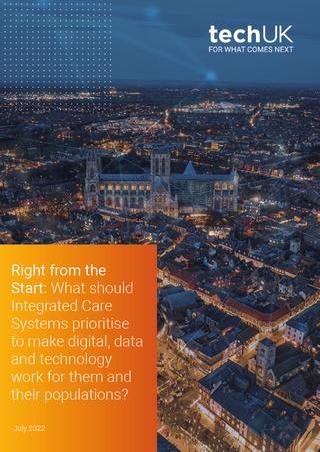Vantage: Data centres - ensuring your place in today’s digital economy
Email, web, mobile apps, social media, e-commerce and cloud computing are firmly entrenched as key components of the digital economy. They’re essential for making things tick, whether working from the office or from home, on-line shopping and banking and much more besides.
But what’s behind these pillars of our digital economy and the emerging possibilities of ‘Place’?
Enter the modern data centre
Whether you’re a consumer, business, bank, fintech, retailer, utility, government, research or educational institution, or whatever else, you are dependent on data centres somewhere, somehow for making it through the digital day.
So too are the latest innovations enabled through artificial intelligence, machine learning, augmented and virtual reality, not to mention smart cities and a seemingly infinite array of other Internet of Things (IoT)-enabled consumer, business and industrial applications. And of course, don’t forget the much talked about ‘metaverse’.
Being down to earth about digital
Cleary, our digitally enabled and virtual world doesn’t actually exist as if by magic up there in cyberspace. How all that data is physically stored, processed and protected is where data centres come in. These facilities are also effectively 21st century warehouses featuring diverse high-speed carrier and Internet Service Provider (ISP) networks that can connect your business to virtually anywhere on the planet. In an increasingly hyperconnected ‘always-on’ world, this place-based approach ensures that data is stored in a few secure locations to then be used instantly and effortlessly across places.
To survive and thrive, modern dynamic businesses, large or small, can no longer afford or indeed rely on keeping all their essential IT systems in-house; whether it’s software for managing suppliers; sales order processing; analysing customer buying habits; powering e-commerce and web sites. How efficiently and reliably all this is done will largely determine how sharp your competitive edge is going to be. If these systems or networks fail, suffer security breaches or are hit by fire or flood, business operations are likely to be affected, sometimes with catastrophic consequences.
Consider Colocation
That’s why outsourcing IT servers and equipment into third party ‘colocation’ data centres has become a growing trend for businesses of all shapes and sizes in recent years. These provide the critical infrastructure, security and support services for keeping your systems continuously available.
Many businesses are also turning to the cloud as well or instead. But in the rush to cloud enabled services – public, private or hybrid – don’t forget these still depend on the reliability, connectivity and security of data centres residing somewhere on this earth, whether yours, the cloud provider’s, or both.
So, if your data centre is still in-house (in your own office buildings), consider whether this is still the most efficient, cost-effective and secure approach. If they’re totally or partially outsourced to a colocation or cloud provider, know how much it costs, where they are located, what service level agreements are in place, and if there is sufficient capacity for meeting your future IT requirements. Above all, be satisfied your providers have adequate capacity and headroom, resilient infrastructure, and tried and tested disaster recovery processes.
Your next data centre is just too big a deal to leave solely in the hands of the IT guys or even your cloud provider. More than ever, an efficient and future-proofed data centre – one that ensures every place can securely access the data it needs – should be an integral part of your growth strategy.
It’s the rock for securely storing, processing and transmitting data anywhere – in the blink of an eye – leaving you to focus fully on your core business and ensuring its place our digital world.
The techUK podcast: Innovation in place-based care
In this episode we explore the concept of ‘place’ in care, the principles behind it, the impact of Covid-19 on care delivery, prospects for innovation following the introduction of Integrated Care Systems, examples of industry best practice, and where listeners can go to learn more about ‘place’ and innovation in care.
We were joined by Helena Zaum (Social Care Lead at Microsoft and Chair of techUK’s Social Care Working Group), Scott Cain (Associate at the Connected Places Catapult) and Hannah Groombridge (Healthcare Engagement Manager at Person Centred Software).
This discussion forms part of techUK’s Digital Place Week 2022 activity and features on our recently-launched Social Care Innovation Hub.

Read techUK's latest flagship report, released on Thursday's 'Health and Wellbeing' day:
Right from the start: What should Integrated Care Systems prioritise to make digital, data and technology work for them and their populations?


